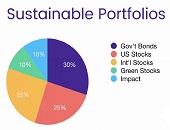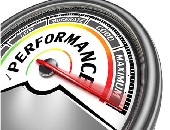ESG disclosures: apples vs oranges
When it comes to environmental, social, and governance (ESG) funds, do you feel like we are still comparing apples with oranges? Isn’t it time for a global voluntary standard? “There’s been an explosion of interest in ESG investing, but the inconsistency in ESG-related disclosures could lead to an erosion of trust in the industry,” said Deborah Kidd, who is a director with the Global Industry Standards (GIPS). She was the first of two panelists who presented a consultation paper on “ESG Disclosure Standards for Investment Products” at a webinar titled “Improving Transparency and Comparability of Investment Products with ESG-related Features” […]
Psychology of Money
In 2009, award-winning journalist Morgan Housel was awash in information about the 2008 financial collapse. Yet, try as he might, he could not find the answer to the question: “Why did people behave the way they did?” This is what led him to start formulating notes for what became a blog, and eventually a book titled The Psychology of Money: Timeless lessons on wealth, greed, and happiness (Harriman House, 2020). The book was launched on September 8. “What is a person’s relationship with greed and fear? The psychological side of investing is the most important side,” Housel said, “because if you […]
Investing in the greater good
Every day, more investors are converting their portfolios to socially responsible investing (SRI). But does being a socially responsible investor mean you will take a hit on performance? “Over the last five years, responsible investments have done at least as well as the traditional portfolio,” said Tim Nash, a fee-for-service financial planner who spoke at the webinar “Investing in the Greater Good” on August 18, 2020, sponsored by Questrade. Nash is the founder of Good Investing and blogs as The Sustainable Economist. He is also the lead researcher for Ethical Markets Green Transition Scoreboard research report, which details more than […]
Healthy skepticism
Selecting environmental, social, and governance (ESG) funds is a way that ordinary citizens can invest in an ethical way. But what does the increased interest in ESG investing shown by institutional and private wealth clients really mean? Is it paying off? Are we at a watershed moment for structural change in the way investors allocate resources? The move to consider ESG investing came some years ago with scandals such as Enron, and continues with more scandals such as Volkswagen’s Dieselgate and Facebook’s meddlings, said Pedro Matos, a professor of finance at University of Virginia and the author of the CFA […]
Quality in the time of Covid
There’s a wide range of “quality factor” investing out there. How can the investor distinguish between the variety of methods? More importantly, how can the investor select the best factor method for given economic conditions? To answer this question, a recent paper compared the variety of methods, and examined how each method performed under different market conditions. The paper, “What is Quality?”, by Jason Hsu, Vitali Kalesnik, and Engin Kose, won the Graham & Dodd 2020 award for the best paper published in the Financial Analysts Journal in 2019. To celebrate the achievement, the journal invited the authors of the […]
From brown energy to green
How will climate change affect the financial sector and the broader economy? What policy responses will mitigate climate change risks? Recently, the US Federal Reserve Bank (FRB) sponsored the first conference dedicated to exploring the economic and financial risks associated with climate change. “Climate change will have sweeping effects on our economy and financial system,” says the report summarizing the main themes of the conference. The report, released on December 16, 2019, was co-authored by Galina B. Hale, Òscar Jordà, and Glenn D. Rudebusch. Hale is a research advisor and Jordà and Rudebusch are both senior policy advisors at the Federal […]
Shifting Energy Markets
How are strategic priorities in energy markets shifting? What are the risk management implications? “Geopolitical risks have worsened and technological innovation is causing more disruption,” said Medy Agami, senior partner and vice-chairman at Ben-Roz and Associates and co-founder of the consulting firm Opimas. He was the sole presenter of the webinar “Energy Market Strategy and Risk Playbook: How to prosper amid a wave of disruptive innovation, geopolitical uncertainty, market volatility & exponentially growing risk landscape in 2018 & beyond” sponsored by the Global Association of Risk Professionals (GARP) on August 7, 2018. “There are five main forces acting on fundamentally shifting markets,” […]
A Tale of Two Funds
There are helpful and unhelpful models for determining risk-based profit attribution, according to Michael B. Miller, founder and CEO, Northstar Risk. This is part 2 of his explanation about how to attribute financial performance, given at a webinar sponsored by the Global Association of Risk Professionals on June 20, 2018. Miller gave an example of two funds. Fund A contains both long and short assets, is market neutral and generates positive alpha. Fund B is a macro fund that is market dependent and whose manager is correct 54 percent of the time. The returns of Funds A and B look very […]
Risk-Based Profit Attribution
“Even the best portfolio managers have bad years due to macroeconomic factors beyond their control,” said Michael B. Miller, founder and CEO, Northstar Risk, to an audience of financial risk professionals. This is Part 1 of his talk about how to attribute performance for financial management at a webinar sponsored by the Global Association of Risk Professionals on June 20, 2018. “We tend to view measurement of risk and performance as separate tasks, but performance can only be fully understood by taking risk into account,” Miller said. Performance is always evaluated relative to something else, such as “the market”—which commonly taken […]
Extracting Value from CECL 2
To meet the new for current expected credit losses (CECL) requirements, “you will need a lot of data,” said Thomas Caragher, Senior Product Manager of Financial & Risk Management Solutions at Fiserv, a US provider of financial services technology. Seven to ten years of data is not unreasonable. The payoff to massive data-gathering is that “you will be able to build strategy more effectively if you have information.” But what to do with the reams of data? First, you have to make some sense of it. “Start by correlating the data,” he said. Oil production might be correlated with loan demand […]










